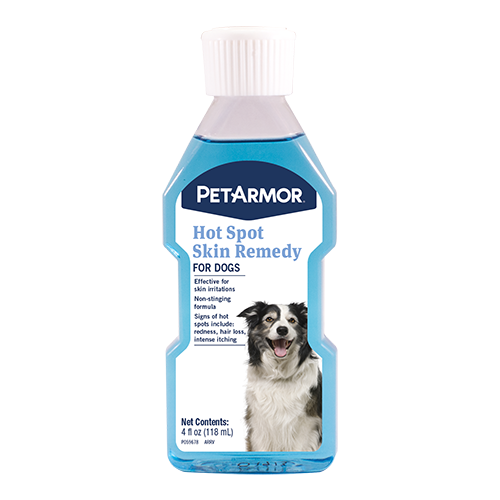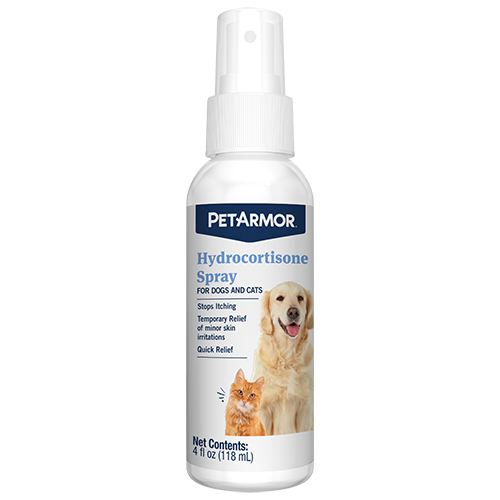All About Hot Spots
Skin and coat care is essential for your pet’s overall well-being. A healthy coat is critical to protecting your pet’s skin, which is much thinner and more sensitive than ours. A regular skin and coat maintenance regimen keeps your pet happy and healthy.
Signs that your pet may have hot spots include:
- Lesions on your pet's skin
- Ulcerations or signs of pus at the hot spot site
- Reddish-brown saliva staining on your pet's coat
- Compulsive licking and chewing
- Hair loss
What Are Hot Spots?
Hot Spots are lesions that result from repetitive licking and chewing. There is usually an underlying condition such as fleas, allergies (from food, pollen, and other environmental factors), or poor grooming, that can cause your pet to lick the same spot frequently. Stress may also be a factor that contributes to your pet’s instinct to lick. Hot spots can grow rapidly, become infected, and be quite painful.
What Hot Spots Mean for Your Pet
Hot spots can cause extreme discomfort, become infected, and give off a bad odor. Hot spot is a general term indicating an actively spreading, moist, itchy (pruritic), deep skin infection. Anything that traumatizes the skin may cause one.
You Can Help Your Pet
You will want to treat what may be causing your pet's hot spot along with the hot spot itself. Consult your veterinarian to determine if your pet has food, contact, or airborne allergies. Guard against fleas and ticks by protecting them with a vet-quality flea and tick treatment from PetArmor®. In addition, keeping your pet properly groomed can go a long way toward preventing hot spots.
Does Your Pet Have Allergies?
Your pet’s allergen receptors are located in his or her skin. What this means is pets don’t get as bad a runny nose or congestion from allergies like we do. Instead, they develop skin conditions. Skin allergies occur when your pet’s immune system overreacts to exposure to allergens in your pet’s environment. Some allergens include ingredients found in foods, as well as pollens, mold, and mold spores in the air. More commonly, pets develop allergies from flea bites. Allergies are particularly common in terriers, setters, retrievers, and pets living in hot or humid climates.
Signs that your pet may have skin allergies include:
- Excessive itching and scratching
- Constant licking
- Itchy and runny eyes
- Sneezing
- Vomiting
- Diarrhea
What It Means for Your Pet
Allergies can make your pet extremely uncomfortable and cause a variety of health problems. Pets experiencing allergies often scratch excessively, which can lead to hot spots and skin infections. Vomiting, diarrhea, and sneezing may also occur, further compromising your pet’s well-being.
You Can Help
Guarding against pests with vet-quality flea and tick treatments from PetArmor can go a long way toward keeping your pet allergy-free. If your pet experiences an allergic reaction you will want to treat the reaction, but don’t forget to treat the cause. Your pet may have food, contact, or airborne allergies. You should consult your veterinarian to find the exact cause.




